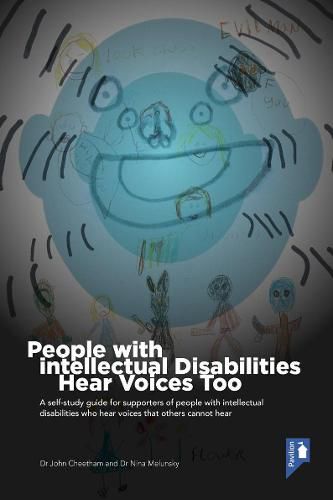Readings Newsletter
Become a Readings Member to make your shopping experience even easier.
Sign in or sign up for free!
You’re not far away from qualifying for FREE standard shipping within Australia
You’ve qualified for FREE standard shipping within Australia
The cart is loading…






Dr John Cheetham and Dr Nina Melunsky will be speaking about Understanding and adapting best practice to support people with intellectual disabilities who hear voices that others cannot hear at Learning Disability Today London 2019.
People with Intellectual Disabilities Hear Voices Too is a unique publication that aims to address a gap in understanding the experiences of people with intellectual disabilities who hear voices, and how best to offer support in practical, person-centred ways. It draws on best practice guidance on psychosis and also learning disability from NICE and from the British Psychological Society.
The self-study guide covers current knowledge on evidence-based theories of understanding voice-hearing, as well as common ways of understanding these experiences as described by voice-hearers, included in supportive video footage.
Contents include:
Myth and jargon busting How people with intellectual disabilities are affected by voice-hearing Theories of voice-hearing Role of trauma Evidence-based interventions Common triggers and coping skills Communication skills How do we use this knowledge in practice? How and when to seek help from services A complementary resource pack and training pack are in development.
$9.00 standard shipping within Australia
FREE standard shipping within Australia for orders over $100.00
Express & International shipping calculated at checkout
Dr John Cheetham and Dr Nina Melunsky will be speaking about Understanding and adapting best practice to support people with intellectual disabilities who hear voices that others cannot hear at Learning Disability Today London 2019.
People with Intellectual Disabilities Hear Voices Too is a unique publication that aims to address a gap in understanding the experiences of people with intellectual disabilities who hear voices, and how best to offer support in practical, person-centred ways. It draws on best practice guidance on psychosis and also learning disability from NICE and from the British Psychological Society.
The self-study guide covers current knowledge on evidence-based theories of understanding voice-hearing, as well as common ways of understanding these experiences as described by voice-hearers, included in supportive video footage.
Contents include:
Myth and jargon busting How people with intellectual disabilities are affected by voice-hearing Theories of voice-hearing Role of trauma Evidence-based interventions Common triggers and coping skills Communication skills How do we use this knowledge in practice? How and when to seek help from services A complementary resource pack and training pack are in development.